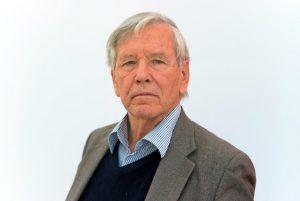Dominic Green in Spectator:
 In Western democracies, literature no longer matters to politics. Once, literature and politics could co-exist on the same typewriter or in the same person: George Orwell in Britain, André Malraux in France. But that was a long time ago. Still, the powers of politics remain linguistic, whether bureaucratic or rhetorical: the war criminal at his desk, the elected representative on her Twitter. Amos Oz, the Israeli novelist who died today aged 79, was living proof of the political powers of literature. In Israel, which is a Western democracy most of the time, Oz is seen as a great writer but a failed politician. In the West, he is seen as the still-living conscience of a political failure. Nothing shows us both sides of a story so well as a novel. And nothing occludes the quality of literature like politics.
In Western democracies, literature no longer matters to politics. Once, literature and politics could co-exist on the same typewriter or in the same person: George Orwell in Britain, André Malraux in France. But that was a long time ago. Still, the powers of politics remain linguistic, whether bureaucratic or rhetorical: the war criminal at his desk, the elected representative on her Twitter. Amos Oz, the Israeli novelist who died today aged 79, was living proof of the political powers of literature. In Israel, which is a Western democracy most of the time, Oz is seen as a great writer but a failed politician. In the West, he is seen as the still-living conscience of a political failure. Nothing shows us both sides of a story so well as a novel. And nothing occludes the quality of literature like politics.
Oz was the Everyman of Israel’s founding elite. There were elements of necessary imposture in this persona, but that is what fiction needs. As he eventually described in his autobiography, A Tale of Love and Darkness (2002), Oz, the global face of kibbutz socialism and Peace Now, was born into a prominent Revisionist family. The Revisionists were followers of Ze’ev Jabotinsky, who mixed liberal politics with the ‘Iron Wall’ approach to the Arabs. In the one-party state-in-the-making of Mandate Palestine, Labour Zionists already held the balance. In 1949, when the new state of Israel held its first presidential election, Amos Klausner’s great-uncle Joseph Klausner, a historian and literature professor, ran and lost as the candidate of Menachem Begin’s Herut party. In 1951, Amos’s mother committed suicide; in his telling, she was a delayed victim of the Shoah. Two years later, aged 14, he turned left, moved to a kibbutz, and extracted a new surname from the heart of his old one. ‘Oz’ means ‘strength’.
More here.
